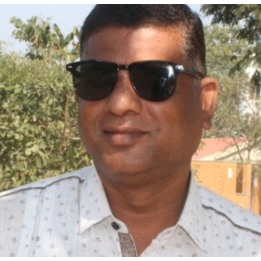Opinion
Pravin Mutyal: "Awareness-raising is important in ensuring people with HIV have equal access to their human rights and opportunities"
Image

Today there are 2.3 million Indians living with HIV and Pravin Mutyal, Snehalaya's director, explains us the actual context and the role of his organization to provide dignity to this people.
Snehalaya was established in 1989 when we started working with sex workers in our local red light areas. In the early 1990s, when HIV started ravaging those communities and the country, we started a death with dignity program where we literally picked corpses off the street and buried them. Since then we have diversified to give people living with HIV and AIDS (PLHA) dignity in life.
Today there are 2.3 million Indians living with HIV and the various support systems in place include the provision of free ART medication and other assistance, however the stigma around HIV/AIDS remains dominant and still marginalizes those affected by the virus. We have over 20 projects working a semi-rural area of India as well as shelter homes and health projects for PLHA. We work hard to empower our children and adults living with HIV but many challenges remain.
Our unique use of peer mentors, including those recruited from our local sex workers and MSM communities, play a key role in our outreach health work and education projects. This
grassroots approach has drastically reduced the rates of STDs in the district, making it one of the lowest in India.
Each year, between 1 and 7 December, Snehalaya hosts World AIDS week activities to help spread awareness and address the myths and misconceptions about HIV/AIDS. Primarily targeted at sex workers, LGBT and MSM community and PLHA, we also organise awareness programs for college students, slums dwellers and social workers.
One of the highlights of the week is our bride and groom interaction program. One of the hardest challenges of living with HIV is finding a suitable marriage partner, which is why we offer this unique match-making event. Working in partnership with government stakeholders and other NGOs, more than 900 people living with HIV/AIDS have participated in the state-level bride-groom introduction. Out of them, 72 couples found the partner of their choice and 18 of these couples have had HIV negative children.
Our adoption center rescues abandoned and unwanted children, many of whom are HIV+. Despite our efforts, Indian families are still unwilling to adopt HIV+ children but the good news is we have been able to place two children internationally which we believe is a first for India. This means that still around half the children living in our care are HIV+ and while we provide education and vocational training they still experience stigma when exploring future careers. Routine medical examinations when applying for jobs are a norm which identifies and discriminates against those with HIV. Even when they are able to find work they are forced to
hide their diagnosis and take their medication in private which in some cases leads to them stopping taking it all together.
It’s reported that around one-third of people in India have discriminatory views towards people with HIV. Unfortunately, this extends to all areas of society and it is often a challenge to find the medical professionals willing to treat our beneficiaries. Awareness-raising, fact-sharing and stigma-busting is incredibly important in ensuring people with HIV have equal access to their human rights and opportunities. While the Indian government bodies are reducing the transmission of HIV, there seems to be a lack of understanding around how the virus is contracted and PLHA continue to be seen as untouchables. We are committed to advocating for the rights of PLHA and increasing the understanding around the virus but there is still a long way to go.



Add new comment